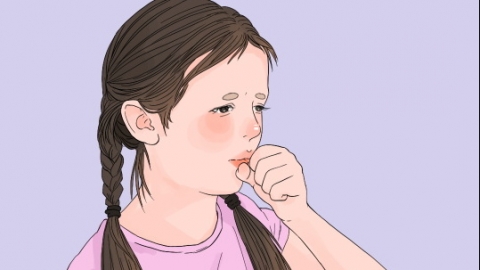What causes an itchy throat and cough, and what should I do?
Generally, the term "throat" refers to the pharynx. Under normal circumstances, symptoms such as pharyngeal itching and coughing may be caused by environmental irritants, dietary factors, allergies, the common cold, chronic pharyngitis, or other reasons. Treatment options include general therapy and medication, under a doctor's guidance. If symptoms persist for a long time or worsen, timely medical consultation is recommended. Detailed explanations are as follows:

1. Environmental Irritation
Prolonged lack of water intake or staying in a dry environment may cause moisture loss in the pharyngeal mucosa, leading to dryness and roughness on the mucosal surface. This can stimulate the sensory nerve endings in the throat, causing an itchy sensation and subsequently triggering a cough reflex. It is advisable to develop a habit of drinking water regularly and ensure sufficient daily hydration.
2. Dietary Factors
Spicy or irritating foods or beverages, such as chili peppers and alcohol, may irritate the pharyngeal mucosa, causing congestion and edema of the mucosa, which can lead to itching and coughing. A bland diet should be maintained, avoiding excessive consumption of spicy or irritating foods. Drinking more water helps relieve throat discomfort and keeps the mucosa moist.
3. Allergy
Inhalation of allergens such as pollen, dust mites, or animal dander may cause an allergic reaction in the pharyngeal mucosa. This can result in mucosal congestion, edema, and increased secretions, which may stimulate nerve endings in the throat, causing itching and coughing. Symptoms may also include sneezing, runny nose, and itchy eyes. Antihistamines such as Loratadine tablets, Cetirizine hydrochloride tablets, or Dextromethorphan hydrobromide syrup may be used under medical advice to relieve symptoms.
4. Common Cold
The common cold is mainly caused by infections such as rhinovirus and coronavirus. After the virus invades the upper respiratory tract, it triggers an inflammatory response, leading to congestion and edema of the throat mucosa. Inflammatory stimulation of nerve endings causes throat itching. At the same time, the inflammation stimulates the respiratory tract, triggering a cough reflex. Other common symptoms include sneezing, runny nose, low-grade fever, and fatigue. Medications such as Ganmao Qingre Granules, Compound Paracetamol and Amantadine Capsules, or Yinqiao Jiedu Tablets may be used under a doctor's guidance for treatment.
5. Chronic Pharyngitis
Chronic pharyngitis is usually caused by repeated episodes of acute pharyngitis, long-term smoking or alcohol consumption, or inhalation of harmful gases or dust. Chronic pharyngitis leads to congestion, thickening of the pharyngeal mucosa, lymphoid tissue hyperplasia, and increased secretions, which can stimulate nerve endings in the throat, causing itching and subsequent coughing. Symptoms may also include a foreign body sensation, dryness, or a burning feeling in the throat. Medications such as Compound Borax Solution, Furacilin Solution, or Cetylpyridinium Iodide Lozenges may be used under medical supervision for treatment.
In daily life, maintaining a healthy lifestyle—including moderate exercise, balanced nutrition, and adequate sleep—can help enhance immunity and reduce the occurrence of diseases.








